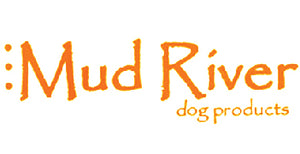Change in season may mean changes in routine, adventures, or social contacts for you and your dog - and likely, for other people and pets in your neighborhood, hunting group, or at the dog park. This means paying extra attention to how your dog behaves after outings; a single encounter with a contaminated water source or an infected animal can transmit a contagious bacterial disease to even a cautious canine.
What is Leptospirosis?
Leptospirosis is a contagious disease caused by leptospira bacteria and spread through the urine of wildlife species. Not only do dogs become extremely sick with leptospirosis, they can potentially contaminate the environment and spread disease to other animals. Dogs become infected when they come in direct contact with contaminated water sources, ingest or lick contaminated water or surfaces, ingest wildlife that carry the disease, or are in direct contact with infected carriers.
Animals that commonly shed leptospira bacteria include:
- Raccoons
- Skunks
- Dogs
- Small mammals or rodents
- Farm animals (cows, sheep, goats, pigs, horses)
Symptoms of animals infected with Leptospira
Some animals, like the rat, don't become symptomatically ill when infected with lepto; they are known as carriers that spread the disease and contaminate the environment. Other infected animals will not show symptoms until the late stages of infection. It's not possible to identify an animal infected with leptospira simply by looking at it. Symptoms of Leptospirosis in dogs Once infected, leptospira reside within the bloodstream. During this time, the dog can exhibit general signs of illness including malaise, fever, and decreased appetite. Approximately one week after initial infection, the disease often spreads to the kidneys, but other organ systems can also be affected including the liver, lungs, eyes, heart, and brain. Because leptospira are in the bloodstream they have easy access to most parts of the body. Symptoms of kidney failure (vomiting, diarrhea, dehydration, lethargy, weight loss, decreased appetite, and changes in urination frequency) are often noted a few weeks after initial infection and can be fatal without early and intense treatment.
Indoor pets at risk
Unless your pet lives in a plastic bubble, exposure is happening - and once is enough to lead to infection. At the dog park, on a walk around the block, a stay at a boarding facility, a trip home for a weekend, a drink from the puddle water, or a swim in the lake all are potential opportunities for even a “city dog” to be infected. While historically this disease has been considered a risk for farm dogs or sporting dogs, we now know from data on disease prevalence that dogs off all breeds and lifestyles are at risk. Especially with the spread of urban communities into more rural areas, disease spread between wildlife and domestic animals occurs with increased frequency.
Protection from disease
Vaccinate your dog for Leptospirosis! The best option currently available is a vaccine that contains the 4 most common serogroups* . There are hundreds of leptospira serogroups, but most are not disease causing. Puppies as young as 9-10 weeks old can begin vaccination for leptospira and will require a booster dose 3-4 weeks later. After the original series is complete, dogs require a yearly vaccine booster for leptospira. Some high-risk dogs may benefit from a booster vaccine every 6 months. Ask your veterinarian about prevalence of leptospirosis in your area. The best offense a good defense!
Diagnosis and treatment for Leptospirosis
Blood work and urine testing are most commonly utilized to confirm diagnosis. Some or all of this can be done with your local veterinarian. Hospitalization with IV fluids and medications is often required for several days for treatment to be successful. Pets that do recover from disease continue may have chronic organ damage.
WARNING
Leptospirosis is not only a concern for our dogs but for people, as well. Protecting dogs via routine vaccination helps protect humans, since a vaccine for humans is not yet available. Also, in areas where dogs are becoming infected, an equal warning should be given to people who frequent or work in those areas. Leptospirosis is a potential hazard for farmers, hunters, outdoor athletes, campers, hikers, fishermen, veterinarians, and others. Extreme caution is advised to immunocompromised individuals, especially when visiting these locations or when handling urine from dogs.
### Amanda Burow, D.V.M. (Dr. B), is a graduate of Iowa State University’s College of Veterinary Medicine. Dr. Burow’s patient list includes hunting dogs of all varieties, as well as several field trial dogs and full time sporting guide dogs. In addition to practicing general veterinary medicine, she has special interest in the areas of preventive care, emergency medicine, and dermatology. In her spare time, she enjoys being outdoors and on the lake, staying active, reading, and spending time with family and friends. Mud River is proud to share these tips from Dr. B with our customers. Keep in mind it is best to work with your local veterinarian to determine the needs for your animals.








